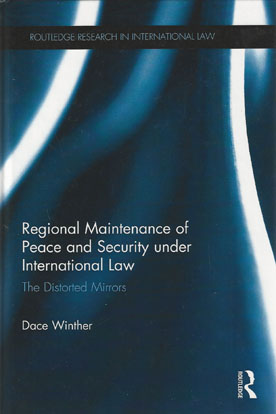
This book explores the scope and the limits of what is appropriate for regional action in the maintenance of peace and security, based on an analysis of the post-Cold War legal documents and practice of the regional organizations of six security regions of the world: Africa, Asia, the Americas, the Middle East, the Russian sphere of influence and the Euro-Atlantic region.
It offers a comparative study of legal regulation of the use of force in the mechanisms for the maintenance of peace and security of different security regions in the context of the UN system and general international law. The book compares the written law and the actual practice of organizations to gain a better comprehension of how the regional organizations interpret and apply international law, especially, what regards the use of force.
It sets out how the different elements of the network of collective maintenance of peace and security work, what the regional mechanisms have in common, how they differ, and how the regional characteristics influence the possibility for coherent action in a UN context. In doing so Dace Winther addresses several important questions including is there a development of a regional right to humanitarian intervention?
She also considers what is regarded as appropriate for regional action in different security regions of the world and if the approaches of the regions differ, what factors could have an influence.